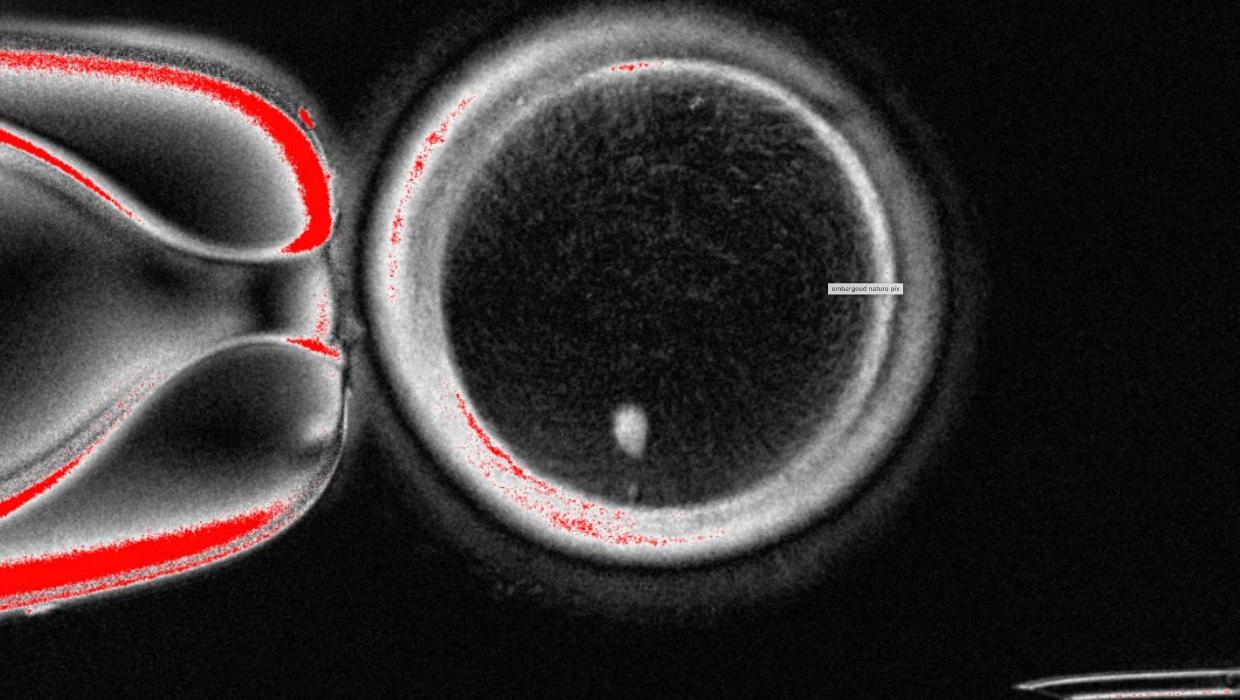Science
US Researchers Transform Skin Cells into Fertilizable Human Eggs

Scientists in the United States have successfully converted human skin cells into fertilizable eggs. This breakthrough represents a significant advancement in reproductive biology and moves researchers closer to producing lab-grown eggs and sperm. Such developments could provide new solutions for individuals facing fertility challenges.
The research team, affiliated with the University of Cambridge, utilized a technique known as cellular reprogramming. This method involves converting specialized skin cells back into a pluripotent state, allowing them to develop into various cell types, including oocytes, or immature egg cells. The findings were published in a peer-reviewed journal on March 1, 2024, highlighting the potential for creating functional gametes for assisted reproduction.
Implications for Reproductive Health
The ability to generate human eggs from skin cells could revolutionize fertility treatments. Currently, many individuals face difficulties conceiving due to age, medical conditions, or genetic factors. By creating lab-grown eggs or sperm, scientists may offer new options that bypass traditional limitations in reproductive health.
Moreover, this research could lead to advancements in understanding genetic diseases and reproductive disorders. The ability to produce gametes from a person’s own cells may also reduce the risk of genetic incompatibilities, enhancing the success rates of in vitro fertilization (IVF) and other assisted reproductive technologies.
According to Dr. Emily Harris, a lead researcher on the project, “This work opens up new avenues for fertility treatment and offers hope for many who struggle to conceive.” The team is now focused on refining the techniques used to enhance the efficiency and viability of the resulting eggs.
Future Research Directions
While the current study demonstrates the feasibility of creating fertilizable eggs from skin cells, further research is necessary to address various challenges. Scientists must ensure that the lab-grown eggs are genetically normal and functionally competent for fertilization and subsequent embryo development.
Additionally, ethical considerations surrounding the use of human cells in reproductive technologies will require close examination. As this field progresses, regulatory frameworks will need to adapt to ensure the responsible application of these innovative techniques.
The recent study marks a pivotal moment in reproductive science, with the potential to change the landscape of fertility treatments. As researchers continue to explore this promising area, the hope is that lab-grown eggs and sperm will become a viable option for those wishing to conceive, offering new possibilities for families around the world.
-

 World3 months ago
World3 months agoTest Your Knowledge: Take the Herald’s Afternoon Quiz Today
-

 Sports3 months ago
Sports3 months agoPM Faces Backlash from Fans During Netball Trophy Ceremony
-

 Lifestyle3 months ago
Lifestyle3 months agoDunedin Designers Win Top Award at Hokonui Fashion Event
-

 Sports3 months ago
Sports3 months agoLiam Lawson Launches New Era for Racing Bulls with Strong Start
-

 Lifestyle3 months ago
Lifestyle3 months agoDisney Fan Reveals Dress Code Tips for Park Visitors
-

 Health3 months ago
Health3 months agoWalking Faster Offers Major Health Benefits for Older Adults
-

 World3 months ago
World3 months agoCoalition Forms to Preserve Māori Wards in Hawke’s Bay
-

 Politics3 months ago
Politics3 months agoScots Rally with Humor and Music to Protest Trump’s Visit
-

 Top Stories3 months ago
Top Stories3 months agoUK and India Finalize Trade Deal to Boost Economic Ties
-

 World3 months ago
World3 months agoHuntly Begins Water Pipe Flushing to Resolve Brown Water Issue
-

 Entertainment3 months ago
Entertainment3 months agoExperience the Excitement of ‘Chief of War’ in Oʻahu
-

 Science3 months ago
Science3 months agoNew Interactive Map Reveals Wairarapa Valley’s Geological Secrets









